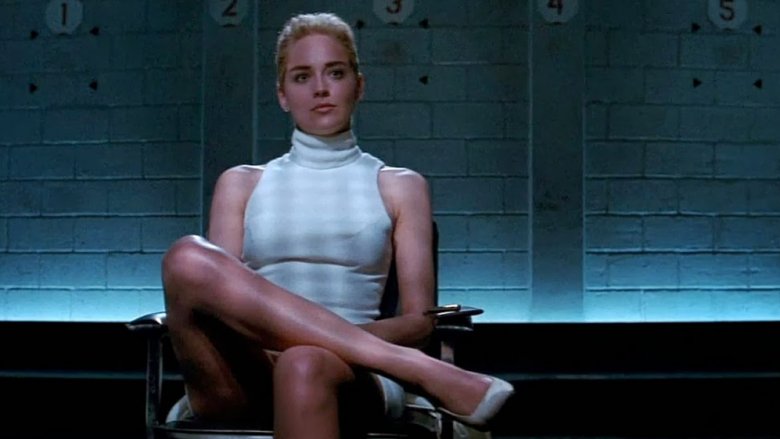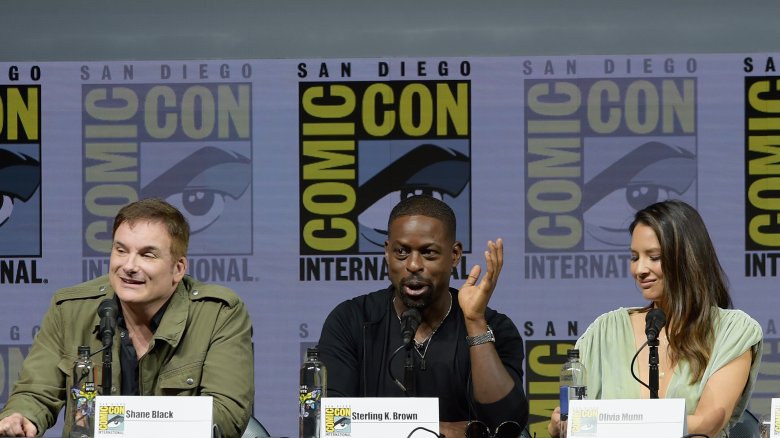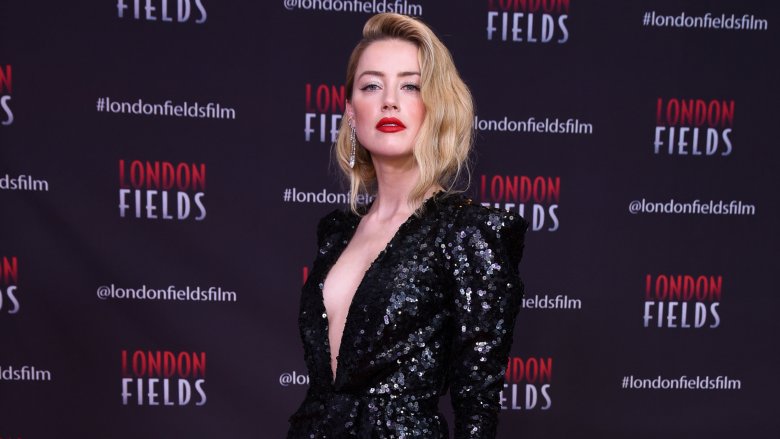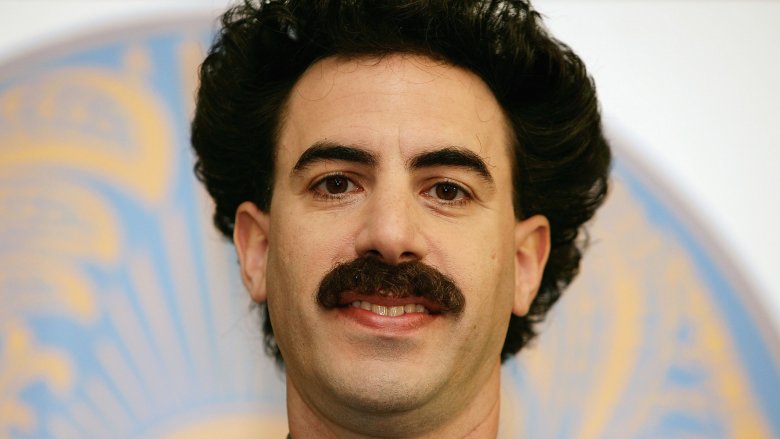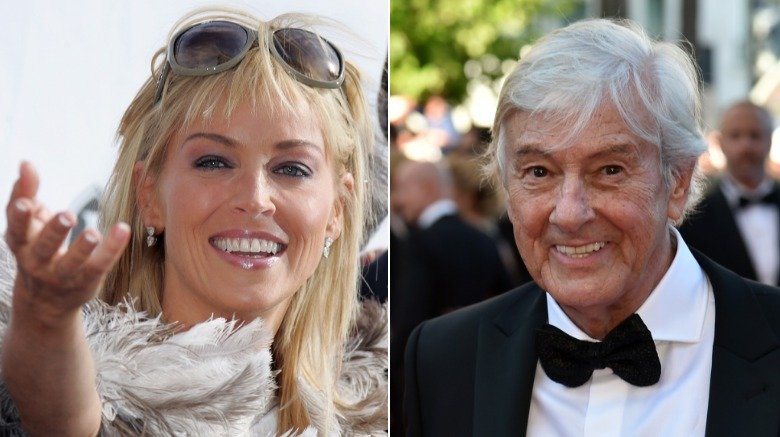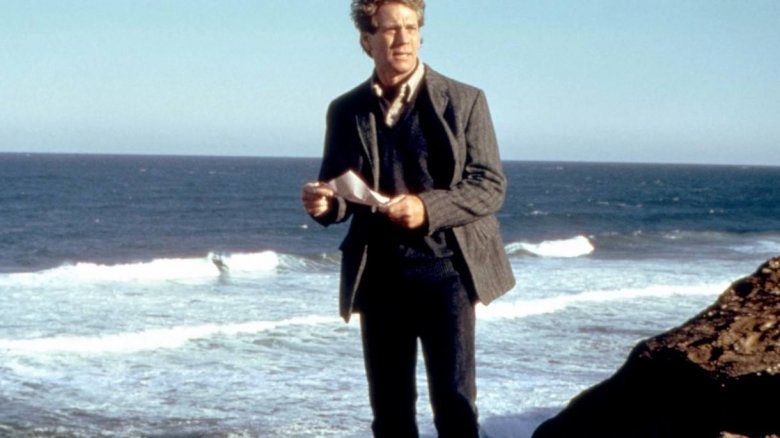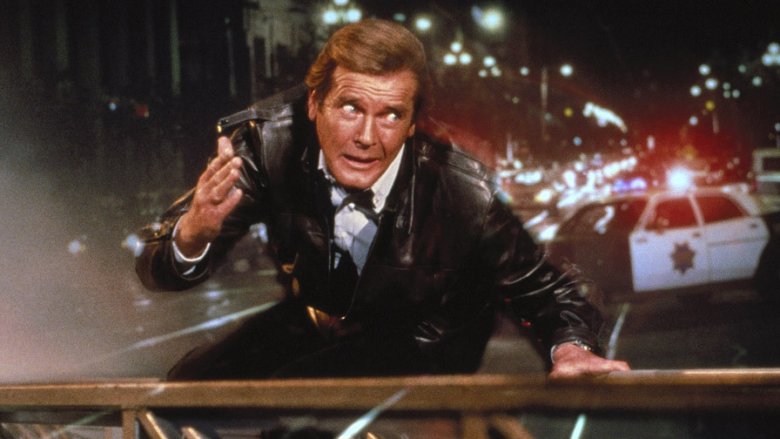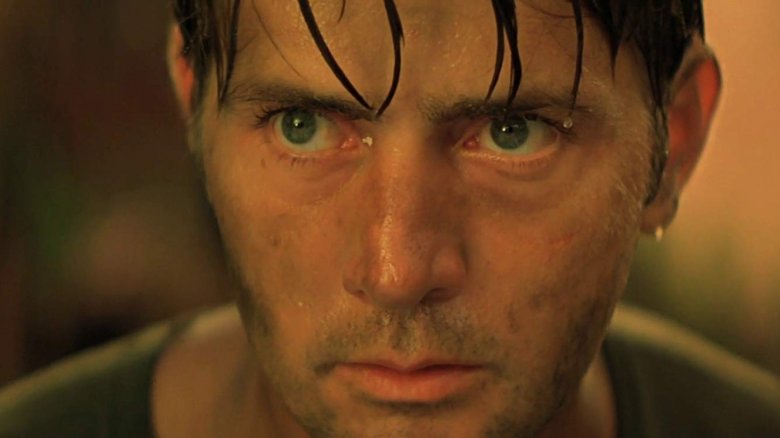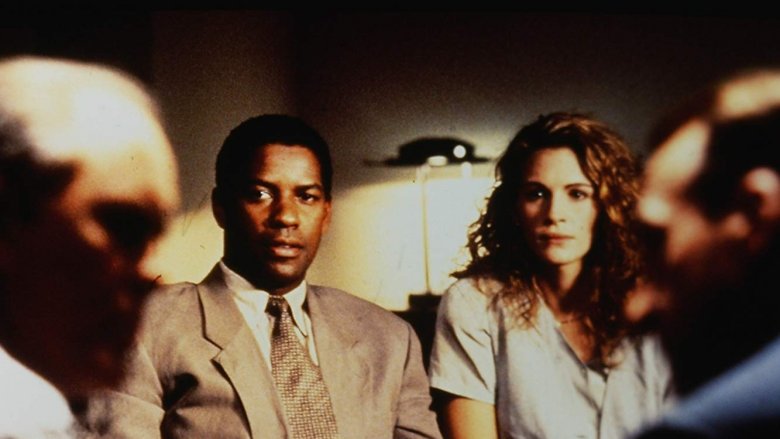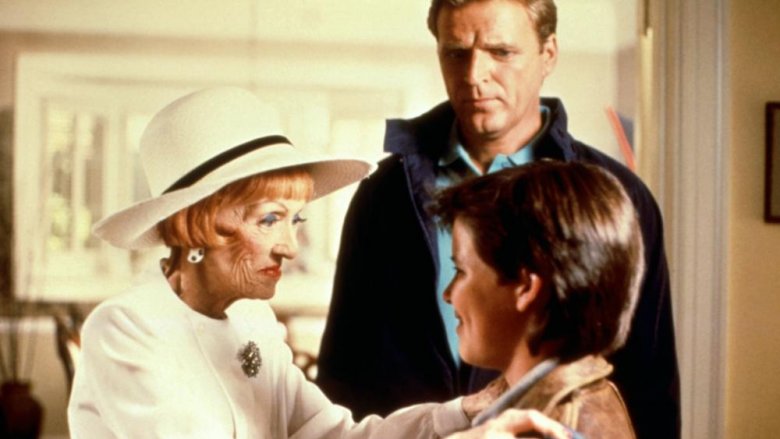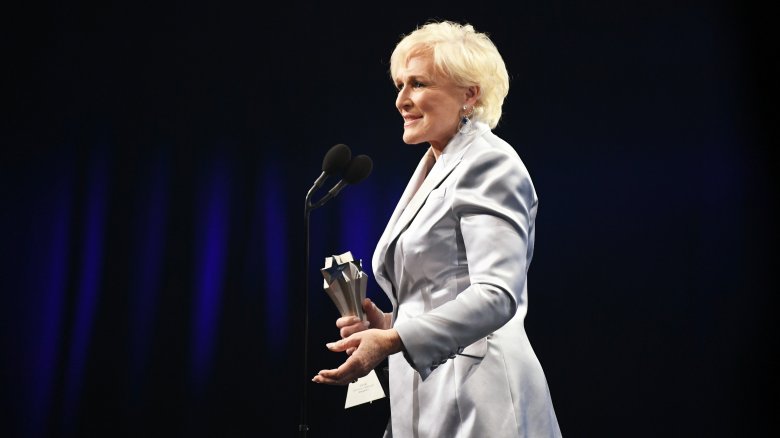Scenes Actors Wanted Cut From The Movie
Making movies is a complicated enough process on its own, and that complexity can increase many times over if there's a disagreement between actors and directors (not to mention producers and studios). These battles might be over technical complications, clashing egos, or even the content of the movie itself, sometimes down to a specific scene (or handful of scenes).
Whether such disagreements stem from changes made to a script, bits of direction that the actor doesn't agree with, feelings of having been exploited, or just outright embarrassment over how the finished film turned out, they generally make for huge headaches. Production delays, drawn-out lawsuits, and loads of bad press are sure to follow. However, sometimes the scenes in question go on to become the most memorable — or even downright iconic — thing in the film.
Some of the time, the actors' demands for these scenes to be cut were met. Others weren't. A few remain contentious to this day. Regardless, here are some of the more famous, infamous, and surprising examples of scenes actors wanted cut from the finished film.
Predatory behavior
One recent example of a clash over a particular scene resulted in a ton of controversy and bad press for the film, right as it was set to open. After it was discovered that The Predator director Shane Black gave a small role to a personal friend who also happened to be a convicted sex offender, star Olivia Munn (who acted alongside him in the scene) spoke out publicly against the decision. She made it clear that she was unaware of the actor's history, and demanded that the scene be removed prior to the release.
It was, and Black apologized to audiences, as well to his cast and crew (especially Munn). The film came out to poor reviews and box office, and while the controversy probably wasn't the main reason for its dismal reception, it certainly didn't help. Munn, meanwhile, was unhappy with the way those around her acted during the whole affair.
A lawsuit leads to a three-year delay
Another fresh example is London Fields, a feature film adaptation of Martin Amis' darkly comic murder mystery science-fiction novel, which bombed hard in 2018 after being shelved for over three years. The delay of its release stemmed from a lawsuit filed by the film's rights holders, Nicola Six Limited, against lead actress Amber Heard and director Mathew Cullen. They charged that Heard and Cullen had conspired to change certain scenes in the script without their approval.
According to the producers' lawsuit, Heard refused to complete the film as planned and demanded a number of rewrites. There was also a dispute over a couple of scenes that involved a stunt double, who Heard alleges producers used to make it seem as though she had filmed additional nude scenes.
Ultimately, the lawsuit was dismissed, with neither party paying out to the other. London Fields then came and went with hardly anyone noticing.
Frat boys don't find Borat "Very nice!"
While it wouldn't be technically correct to call the individuals at the center of this case actors, per se, their role in both the movie and controversy that followed still fit the bill.
Sacha Baron Cohen has made a career of getting people to willingly humiliate themselves on camera. As a result, he's had a number of interview subjects demand to have their segments cut (sometimes successfully, as was the case with a recent interview he conducted with former Republican Vice Presidential nominee Sarah Palin for his newest show, Who Is America?).
The frat boys who made fools of themselves during a memorable scene in Borat: Cultural Learnings of America for Make Benefit Glorious Nation of Kazakhstan, weren't so lucky. In the film, they're shown drinking and behaving obnoxiously, which in-and-of itself isn't that bad. However, once they start ranting about how minorities in America have it better than white people and how women should be made slaves to men, they lose any sympathy the viewer might have afforded them.
After the film's initial release, two of the frat boys sued to have the scene removed, claiming unfair and irreparable damage to their reputations. A judge ultimately ruled against them.
That scene in Basic Instinct
Considering how iconic this scene would become, the word of mouth it spawned no doubt helping the film earn its massive box office haul (as well as countless parodies across the pop culture landscape), it may come as a surprise that, had actress Sharon Stone had her way, the famous interrogation scene in Basic Instinct would have ended up on the cutting room floor.
Given the shockingly explicit nature of the scene — moment, really — which sees Stone's icy murder suspect uncross her legs during a tense police interrogation, only to reveal (to her interrogators as well as the audience) that she's not wearing any underwear, it's easy to understand her reticence. Add to that the controversial way in which it came about — she initially claimed that director Paul Verhoeven tricked her into filming the scene, he denied this, she later watered down her initial claims — and it becomes even more understandable.
Still, regardless of how the scene was actually filmed, it certainly struck a cultural chord, the likes of which haven't really been seen since.
"Oh god! Oh man!"
A little-scene cult oddity, Tough Guys Don't Dance is an enjoyably twisted and over-the-top neo-noir. It's most well-known (and most oft-ridiculed) moment comes during a scene in which lead actor Ryan O'Neal receives some shocking news and blurts out the immortal line, "Oh god! Oh man!" over and over again. His acting is so hammy that it has since been referred to as "the worst line reading of all time."
According to writer/director Norman Mailer himself, everyone begged him to cut the scene — O'Neal, the producers, even the sound engineers. He refused, as he felt the film needed that moment of heightened emotion, although he later admitted that it is, in fact, a disaster. As such, he doesn't blame O'Neal for having called him a "jerk" after the film came out.
Still, disastrous as the scene may be, it's a bizarrely effective moment in a bizarrely effective film, and we should thank Mailer for leaving it in.
"That wasn't Bond."
A View to a Kill is generally considered one of the worst movies in the entire James Bond franchise. One of its biggest detractors is none other than the man who played 007 in the film, the late Roger Moore. According to Moore, who was known to be a staunch anti-gun activist, one of his biggest problems with the movie stemmed from a scene in which the story's villain (played memorably by the always entertaining Christopher Walken) gleefully mows down his own henchman with a machine gun.
Moore was disgusted by the scene, saying of it, "That wasn't Bond." The scene does stick out, its brutal nature feeling at odds with the rest of the zany antics of the movie, but then, Moore wasn't a fan of the more violent Bond films in general. Still, it must have been extra-disappointing to him that A View to a Kill ended up being his last outing in the role.
Physical and mental breakdown
We are introduced to Lt. Benjamin L. Willard (played by Martin Sheen), the main character of Francis Ford Coppola's hallucinatory Vietnam epic Apocalypse Now, during a wild freakout in a Saigon hotel room at the height of the war. Under the influence of drugs and alcohol, Willard swings wildly between violence, paranoia, and sorrow (smashing a body-length mirror by punching it, and cutting his hand badly in the process). It's a powerful scene, one reflective of not only the story within the film, but of the exhaustive, mentally destructive toll that the production had on everyone involved (as captured in the great making-of documentary Hearts of Darkness).
Sheen, who replaced Harvey Keitel in the role after several weeks of filming, was especially affected by the stress of production, suffering both a heart attack and a nervous breakdown during filming. Coppola proved unrelenting in getting Sheen to take up the mindset of the character he was portraying, pushing his actor to the breaking point. What you see during his intoxicated introduction isn't acting — it's real. Sheen was horrified to discover that his actions were filmed, and told Coppola he didn't want the scene used in the movie. Of course, it was.
Turning down a kiss with a Pretty Woman
During the height of their respective careers in the '90s, mega-stars Denzel Washington and Julia Roberts starred together in the legal thriller The Pelican Brief. Despite the standard template of such films, and despite their chemistry together, the film ultimately lacks any explicit romance between their characters.
Apparently, this was not always the case. The two were meant to share a kiss in the film, but the scripted scene was cut at the behest of Washington, who didn't want to play into what he saw as standards of beauty idealized by Hollywood, which he felt would be alienating to his black female fans.
Although Washington has filmed love scenes with white actresses in the time since (as in Spike Lee's He Got Game), rumors have persisted that he's had other such scenes cut from films, including one between himself and Radha Mitchell in Man on Fire. He denies this was the case.
A regrettable curtain call
This isn't a case of an actor wanting a scene cut, so much as wanting all of their scenes cut. Wicked Stepmother, a little-seen horror-comedy from 1989, was directed by cult icon Larry Cohen and starred screen legend Bette Davis in her final role. It also had one of the more disastrous productions in modern memory.
Davis, who was facing a number of health issues and was visibly ill, quit the film after only a couple of weeks. To make matters worse, she publicly trashed the production, claiming an unsafe working environment. Cohen charged that she was merely embarrassed about how she looked on film. Regardless of who was right and who was wrong, the argument led to the film having to be drastically changed during shooting and editing. The trouble also led to a legal battle and a long delayed release. It really is a shame that someone as important to the history of Hollywood as Bette Davis should have had such a nasty swan song.
When a scene is too good
Frequent Oscar nominee Glenn Close received her seventh Best Actress nomination for 2018's The Wife. It's a testament to Close's dedication to her craft that she revealed a line she initially wanted cut for the simple reason that it felt too powerful. She found herself overwhelmed by a scene in which her character's dying husband asks if she loves him. "Does he have to ask me that question as he's dying?" she asked. "That's not fair!"
Close changed her mind when she realized that the line was key to the scene (and indeed, the movie as a whole). This is an interesting example of an actor wanting a scene cut from the film precisely because it is so effective. It's also testament to the intensity of Close's method and abilities. In the end, that's a good problem, and a sign that the movie is working on the level it's meant to.
You have to assume that the rest of the actors and filmmakers on this list wished they'd have been so lucky.
